As you probably know, OpenAI recently released the ChatGPT language neural network. This text AI has already broken all the hype records. It gained 1 million registered users in less than a week.
ChatGPT is available for free use during the “feedback” period. The company hopes to use the collected data to improve the final version of the tool. Anyone can work with AI, just register on their website.
ChatGPT is based on the previous OpenAI text generator, GPT-3. The company builds its text generation models by training machine learning algorithms on books, news articles, Wikipedia pages, and millions of websites. By processing such large amounts of data, models learn the patterns and structure of the language and gain the ability to interpret the desired result of the user’s query.
ChatGPT creates a complex and abstract view of the data it is trained on. Roughly speaking, he understands what he is talking about. That’s why he writes relevant content instead of just spouting grammatically correct nonsense.
While GPT-3 was designed to provide text prompts to users, ChatGPT is optimized for chatting, answering questions, and providing assistance. It turns out such Wikipedia or Google, but with a personal approach.
Due to the adaptability of the bot, users have already found ways to use it in a non-standard way. And no doubt they will find more as I write this article.
So, among other things, the new AI:
1. Creates essays for students on almost any topic
Universities even worry that this way of testing students will soon become completely useless. And some schoolchildren say that they now use ChatGPT to do Java and math homework.
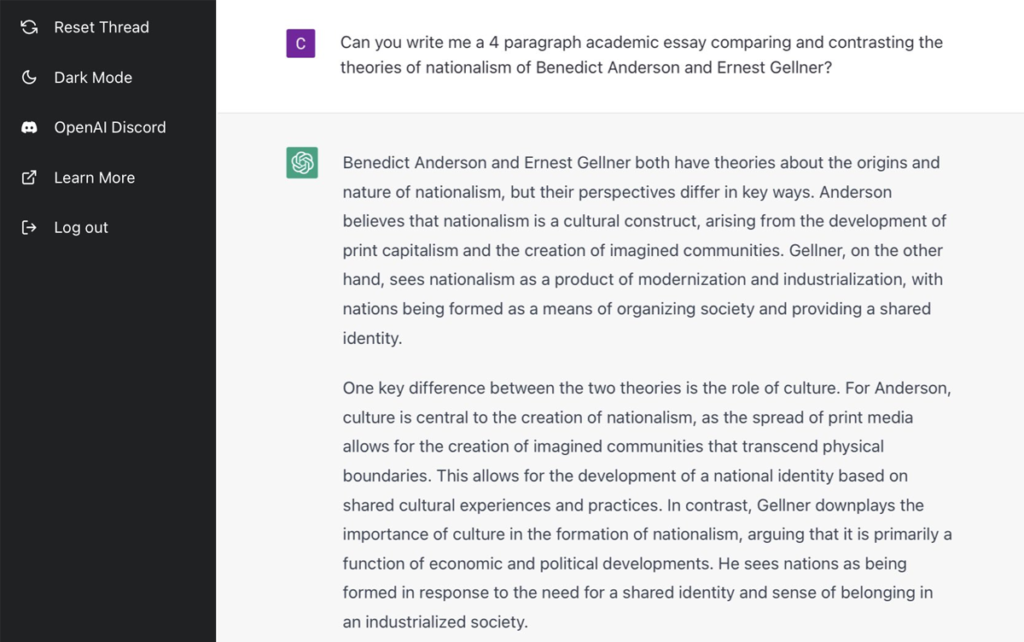
The new AI can be trusted with many typical school assignments, and it does them better than most students. An example from universities turned out to be especially cool: a microbiology professor compiled a test of ten tasks that, as he expected, require a deep understanding of the subject and the ability to abstractly understand where to use calculations, even when there is no explicit question about them. It turned out that ChatGPT passed his test by 95%, much better than the average student. An existential question arises: why then gain knowledge at all, if it is enough to type the right question into the AI chatbox?
2. Makes literary parodies
And humor posts for 4chan. Make a joke according to your taste and on your favorite topic!
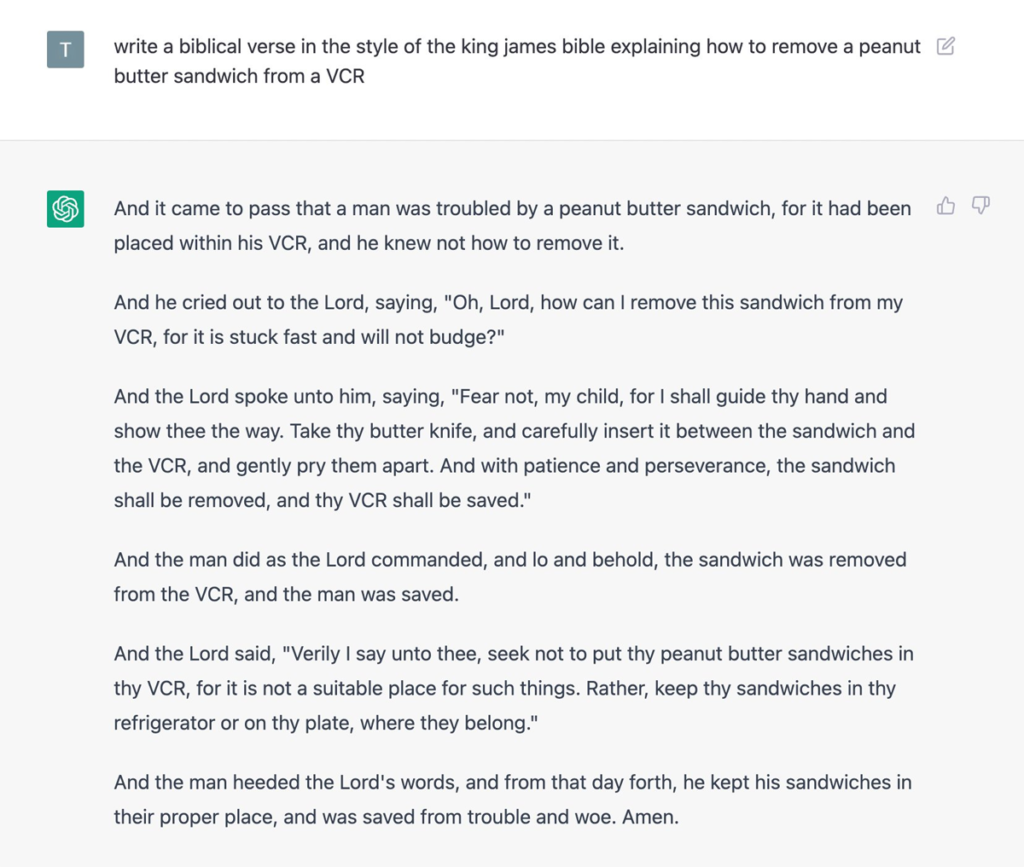
3. Answers difficult programming questions
And also makes a code review in the style of an experienced team leader, teaching and pointing out errors.
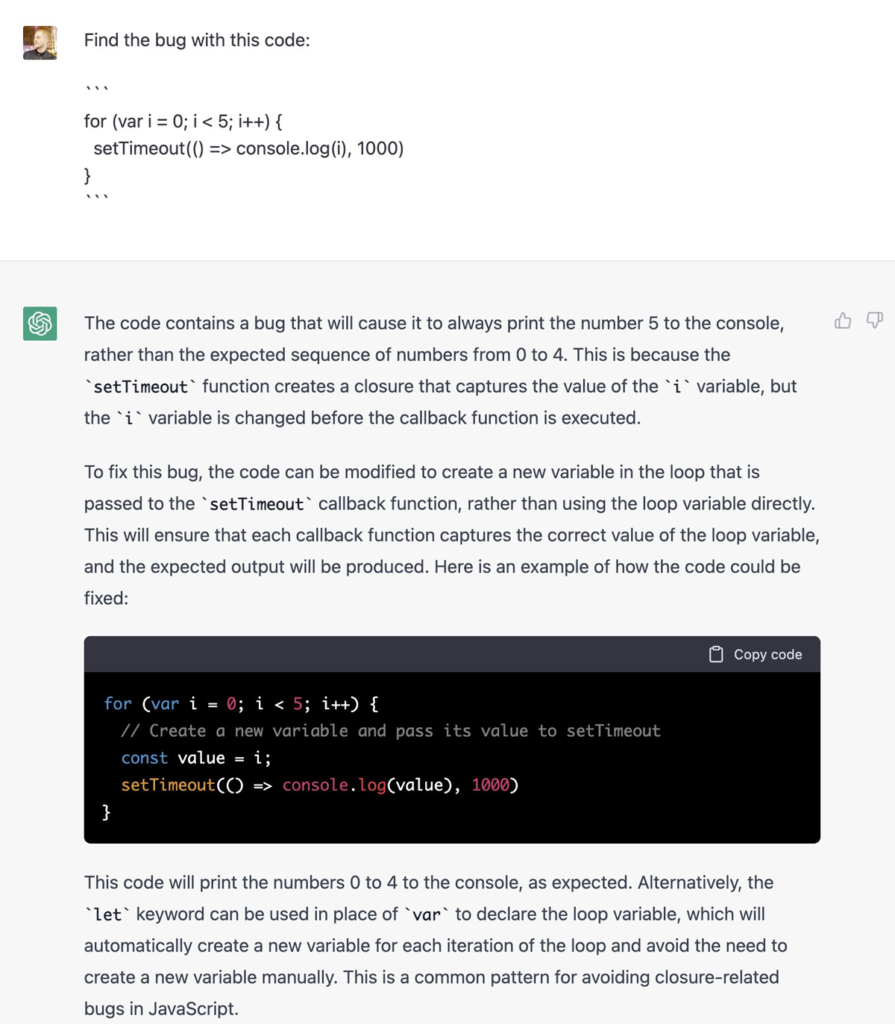
4. Creates requests for other AI to generate images
From a simple phrase, a serious prompt is obtained, describing in detail what kind of picture is needed. Other AIs understand ideas from a bot much better than from a random person.


5. Writes code for smart contracts
For example, he is fluent in the Solidity language for Ethereum. As they say, better than many developers. Perhaps working with the blockchain and creating a dApp will now finally become available even for ordinary users.
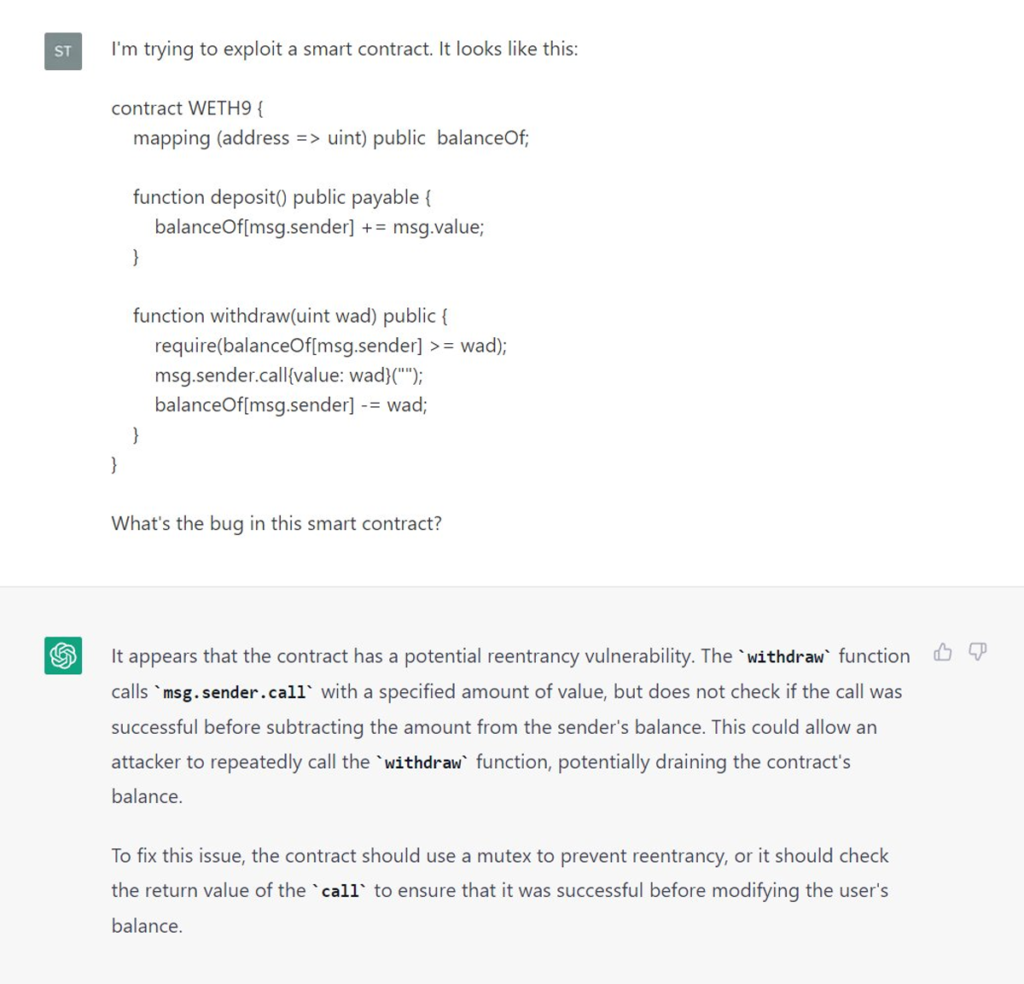
6. Gives useful business advice
CZ, the head of the largest crypto exchange Binance, writes that “this AI is superior to most of the founders of crypto exchanges” regarding what principles to build your business on.
According to him, if Sam-Benkman Fried had listened to the advice of this AI, his FTX exchange would have survived, tens of billions of dollars of investors would not have been lost, and cryptocurrencies would not be going through such difficult times now.
In principle, the advice comes out very good – AI perfectly aggregates information on the Internet and isolates the essence. It can be useful to calm your brain a little and focus it on solving primary issues. For example, a friend of mine who owns a web studio asked what he could do for a software development firm’s website. Here’s what he got:
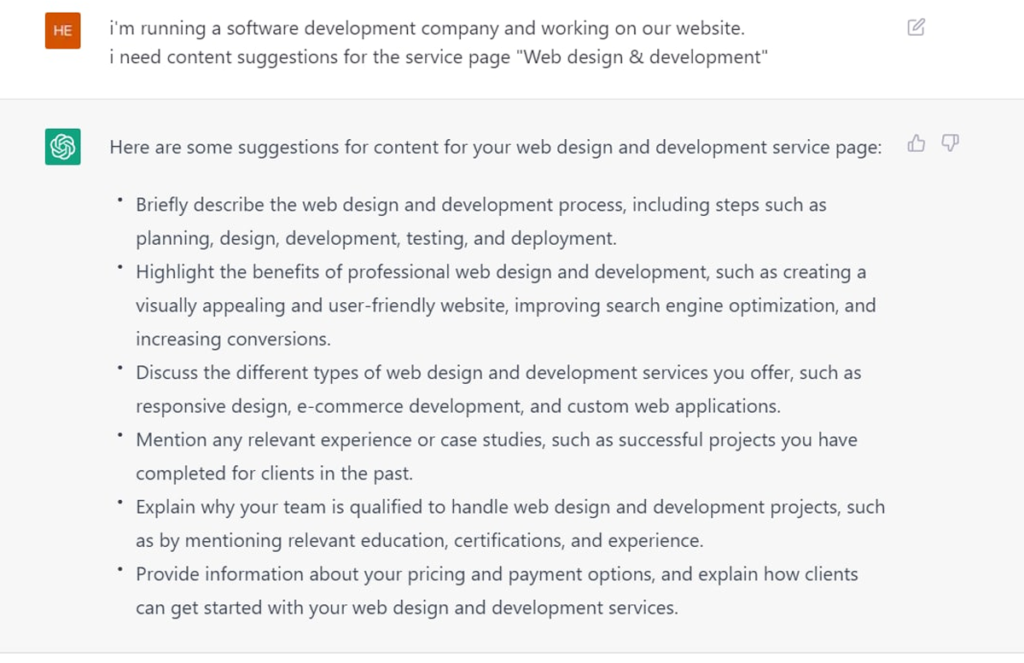
A clean and understandable list, even now give such a task to a copywriter. And not every TOR will be so clear and detailed: many people simply do not have enough energy to work through all this so carefully for each page.
7. Writes very good songs
The AI is especially good at hip-hop . It can even copy the style of a particular artist. Well, with the search for good rhymes, for obvious reasons, he has no problems at all. Undoubtedly, soon such songs will fill YouTube. Moreover, AI that mimics the voices of certain artists already exists (and also, by the way, from OpenAI).

What awaits us
Some people already believe that the new AI can be used as an alternative to Google. While Google searches require you to sift through multiple websites and dig deep to find and sift through the information you need, ChatGPT answers your question directly—and often does it very well .
The potential danger is that since these systems mimic human-generated text in a purely statistical way, such AIs are prone to making up random facts and repeating existing claims and biases . All these problems are still present in ChatGPT. Therefore, it is impossible to blindly trust the information received. The early users of the system found that the system would gladly fabricate convincing nonsense for them on a given topic. However, this is the Internet, what else can you expect?


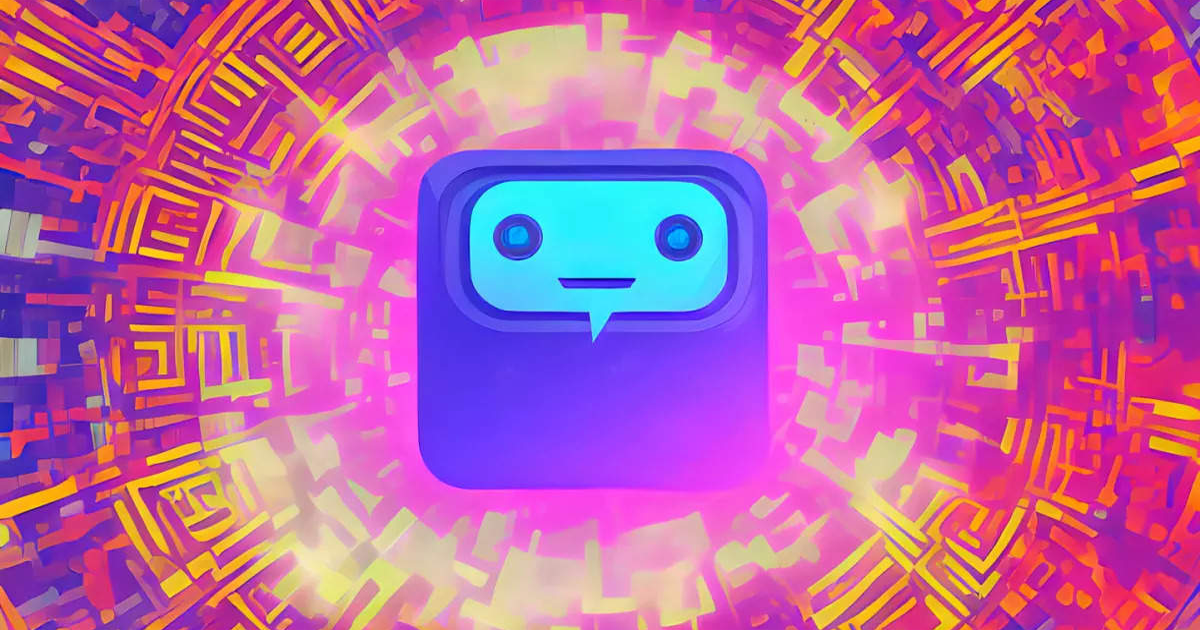



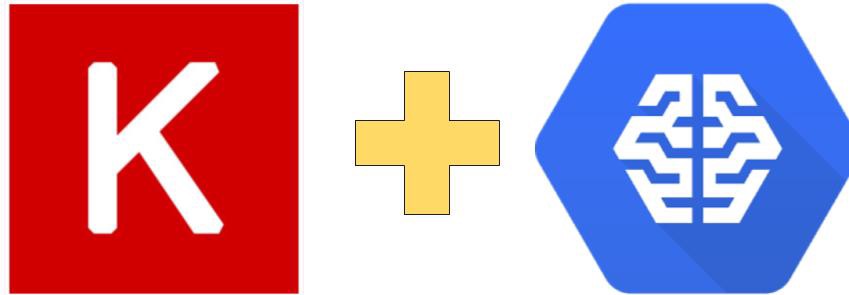
About The Author: Yotec Team
More posts by Yotec Team